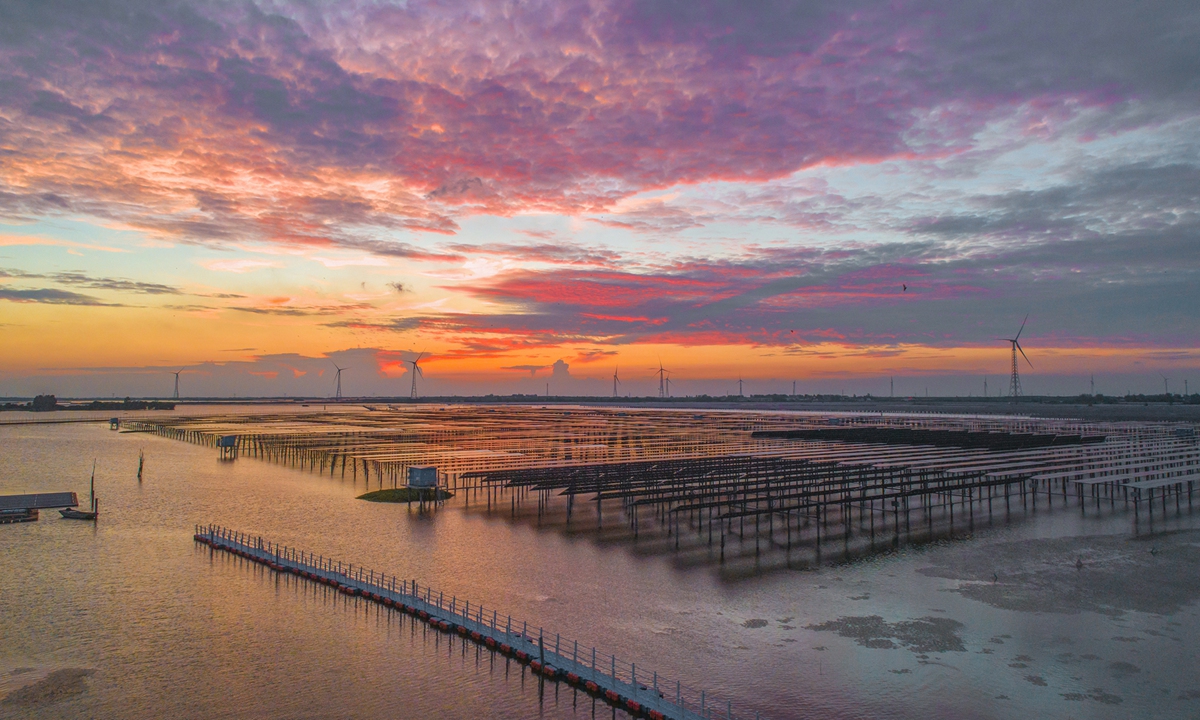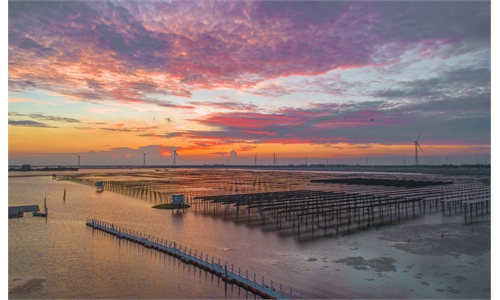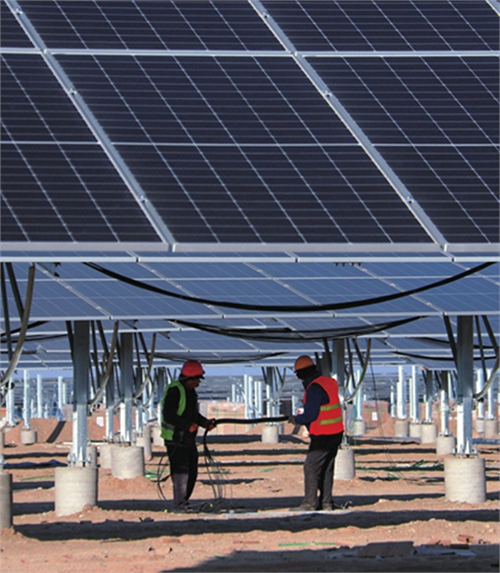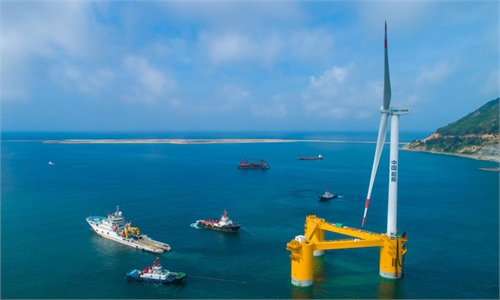
A renewable energy base in Sihong County, East China's Jiangsu Province is seen on Sunday as wind turbines spin. The base can generate 650 million kilowatt-hours of power annually, with tax revenue of 50 million yuan ($7.7 million). The annual income of fishery breeding amounts to 45 million yuan, and tourism income to 20 million yuan. A total of 640,000 tons of carbon emissions can be avoided every year. Photo: VCG
Global investments in renewable energy should be tripled by 2050, in order to put the world on the trajectory toward net zero emissions, according to the latest report released by the World Meteorological Organization (WMO) on Tuesday.
The supply of electricity from clean energy sources must be doubled within the next eight years, or global energy security could be undermined, the report said.
According to the WMO's 2022 State of Climate Services report, climate change is putting global energy security at risk. The effects of climate change, including more frequent and intense extreme weather, are directly affecting fuel supply, energy production, and energy infrastructure.
Although water resources are scarce on a global scale, 87 percent of global electricity generated from thermal, nuclear and hydroelectric systems in 2020 directly depended on the availability of water.
Some 33 percent of the thermal power plants that rely on freshwater for cooling are in high water stress areas, as are 15 percent of existing nuclear power plants - a figure that could rise to 25 percent in the next 20 years.
"Net zero by 2050 is the aim. But we will only get there if we double the supply of low-emissions electricity within the next eight years," said WMO Secretary-General Petteri Taalas.
"The energy sector is the source of around three quarters of global greenhouse gas emissions. Switching to clean forms of energy generation, such as solar, wind and hydropower - and improving energy efficiency - is vital if we are to thrive in the 21st century," he said.
"Time is not on our side, and our climate is changing before our eyes. We need a complete transformation of the global energy system," the WMO chief warned.
Africa could be a major renewables player in the future, the report says. Africa is already facing severe effects from climate change, including massive droughts. The declining cost of clean technology holds new promise for Africa's future, and there is a huge opportunity for Africa to help close the gap in the need for renewable energy.



